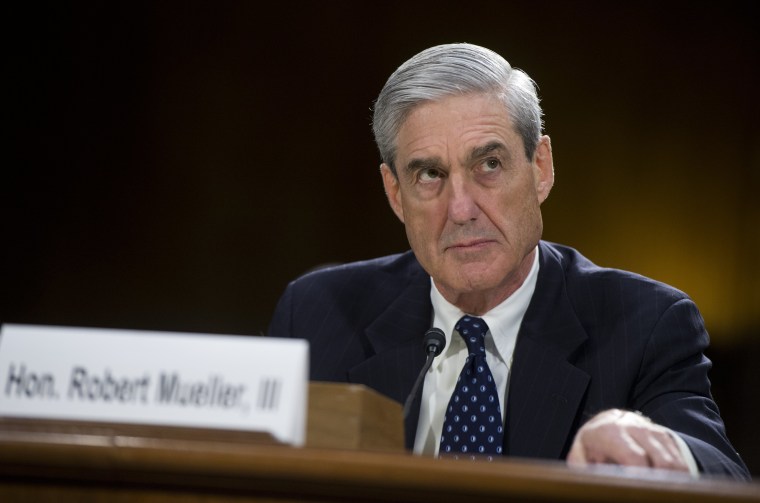Throughout the investigation into the Russia scandal, the polling has been fairly steady: the public has been generally skeptical of Donald Trump's claims, while maintaining confidence in Special Counsel Robert Mueller's investigation.
Yesterday, however, poll watchers received a bit of a surprise.
Amid signs that special counsel Robert Mueller's investigation into Russian election interference may be near its conclusion, a new USA TODAY/Suffolk University Poll finds that trust in Mueller has eroded and half of Americans agree with President Donald Trump's contention that he has been the victim of a "witch hunt."
The president, naturally, was thrilled with the results, which he eagerly touted on Twitter.
That may not have been a good idea. The same results, for example, found that 52% said "they have little or no trust in the president's denials that his 2016 campaign colluded with Moscow in the election that put him in the Oval Office." It would suggest that Trump's frequent rebukes of Mueller and hits team haven't improved the president's own credibility with the public.
But what explains the results that show roughly half the country endorsing the "witch hunt" line? Especially in the wake of another equally reliable recent poll that found only a third of the country agreed with Trump's "witch hunt" claim?
This is a good pollster that utilizes a sound methodology, though in this case, the wording of the specific question raised some red flags.
"President Trump has called the Special Counsel's investigation a 'witch hunt,'" the question read, "and said he's been subjected to more investigations than previous presidents because of politics. Do you agree?"
As a rule, yes-or-no survey questions should focus on a single issue -- and this question went much further. When respondents answered in the affirmative, were they endorsing (a) Trump's "witch hunt" assertions, (b) the idea that he's been subjected to more investigations than his predecessors, or (c) the idea that the scrutiny is politically motivated? Was a "yes" answer an endorsement of one of those three points? More?
The ambiguity is a problem.
To be sure, it's possible that much of the public has soured on the investigation. The president and his cohorts have repeated the "witch hunt" line nearly as many times as they've said "no collusion," and it's not unrealistic to think the constant repetition has influenced Americans' attitudes.
That said, if the USA Today/Suffolk poll is the only real evidence of the public endorsing the White House's rhetoric, I'd recommend some caution.
